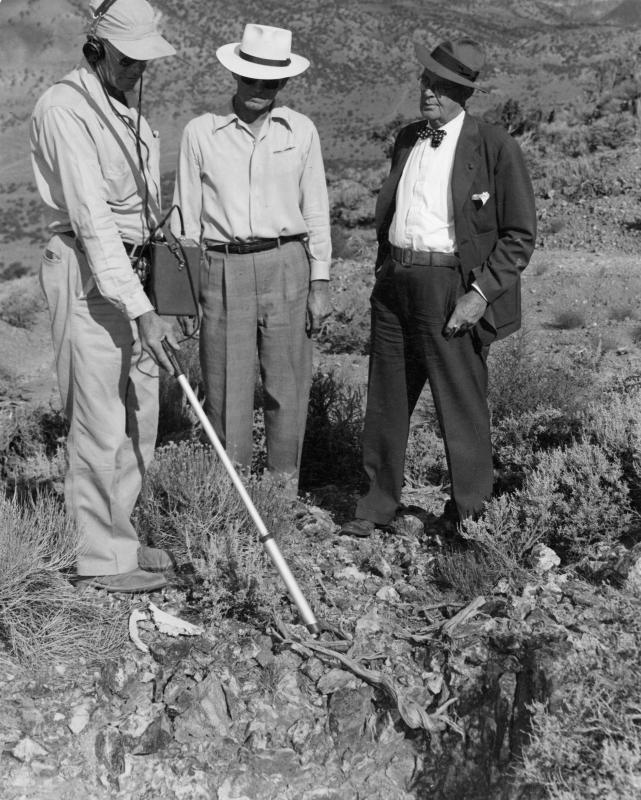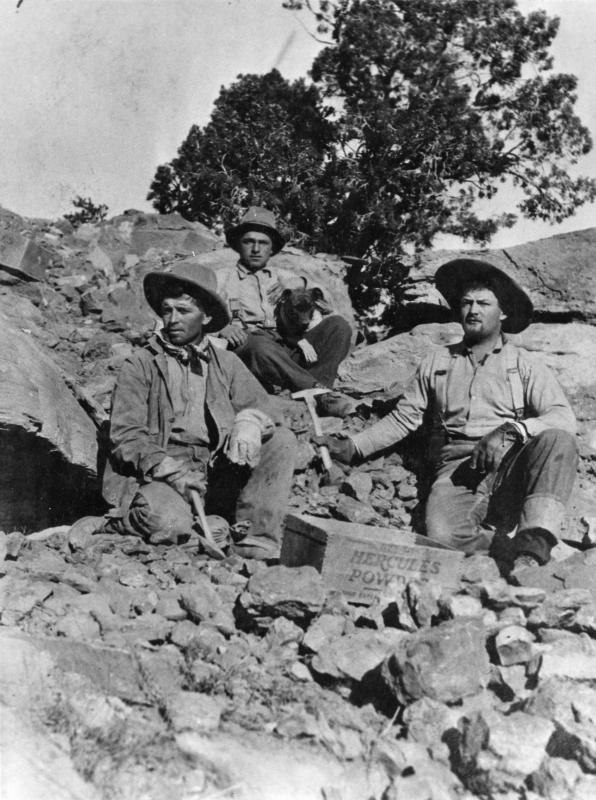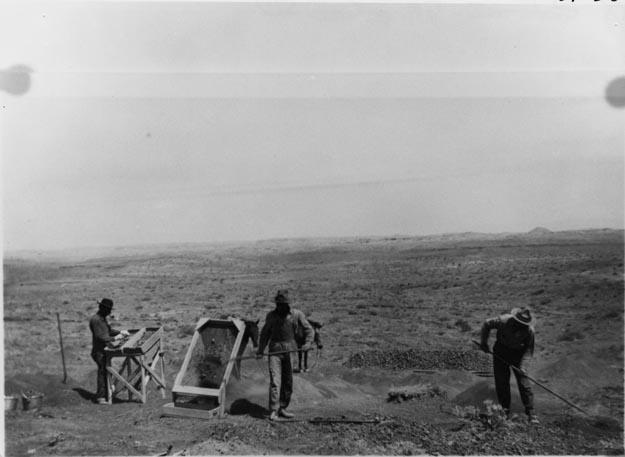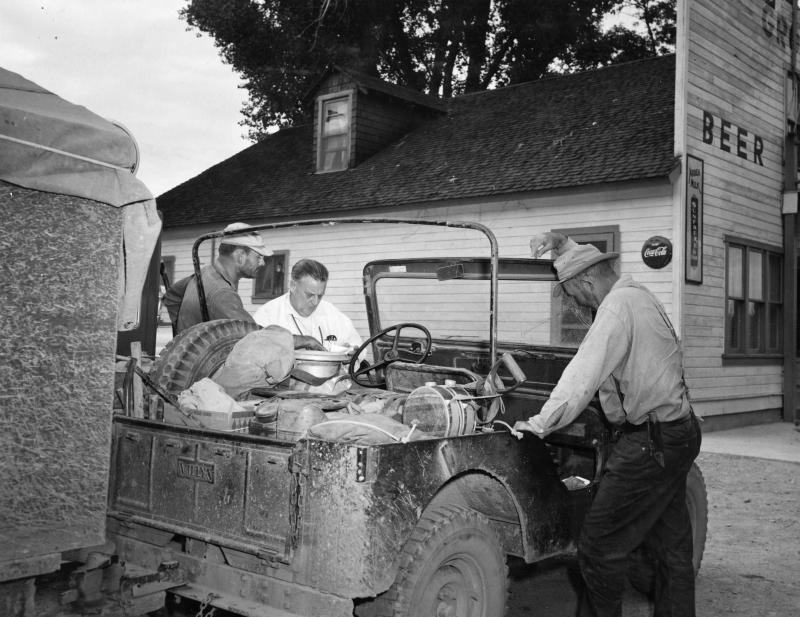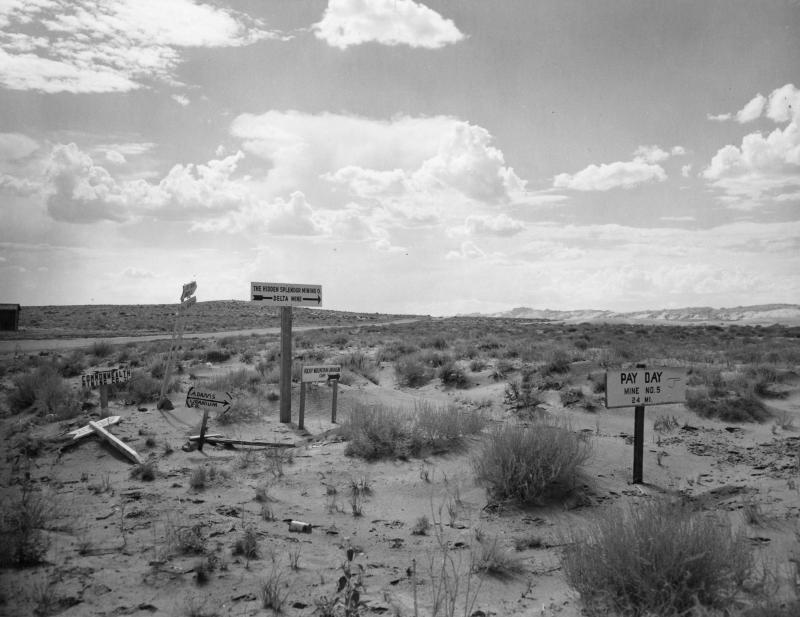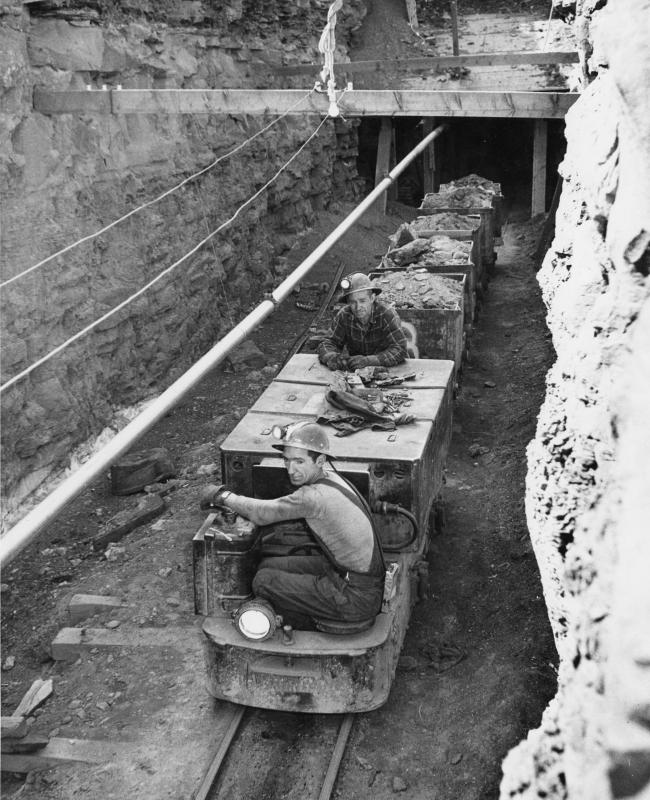"Finding the ore is the major problem."
"Dad and them went down and staked these claims with almost no capital. Just almost no capital, and it was terribly expensive to build roads up to these claims. After having gone to all of these expenses of going down, finding the claims, doing the assessment work, and going and beginning mining operations and mining some ore and building a road up so that they could get a truck up to get it down, they discovered that all of this had netted them almost nothing."
Early prospecting was done on foot.
"We would get a few groceries and get out into the hills in the area we wanted to prospect. As a rule each one of my uncles would take one of us younger fellows and would say, ‘Well, you go this direction and I’ll go this direction and we’ll meet tonight at a certain place, maybe 20 or 30 miles away.’ Usually it was hot and dry and there’s all kinds of pestilence and you walk these old steep canyons and rims all day long—a lot of times without a drink of water for hours on end. That’s the thing I remember most about prospecting. Almost choking to death continually."
“Now, people are actually taking beer cans and turning them over on top of the ground and let them sit there for two or three days and go back to try to collect gas in the can and that sort of thing.”
Over time, prospecting methods improved in sophistication. Prospectors began flying airplanes over the desert with scintillators, machines more sensitive to radiation than Geiger counters. Noonan used a method that collected and analyzed radon gas at the surface. Some attempted this method with more rudimentary tools.
Staking Claims
“Jumping” a claim meant trespassing on it. Claims were staked and recorded in a rather informal process. Few claims were patented, which required a more thorough and expensive process including surveying.
“I was over at the courthouse and there was a guy in there that was a little bit concerned and sincere about staking his claims. He asked [county recorder Arvilla Warren] whether it was okay for her to record it, and she said, ’I’ll record anything. I’ll even record beer labels over here for a dollar a piece.’”
“One day a bunch of guys came down from Las Vegas to look at a mine. I sold my claim to him. We was walking across his property, you know, his claim, and it was an open range. Anyway we was just walking across, and we seen him way up on top. And boy he was really cussing us, saying, ‘Get off my claim! Get off!’ And, by God, we was just moseying along, you know, and heck, we wasn’t paying no attention, and pretty soon he was coming over that hill. He’s about seventy-five years old, and boy, he got down there with a .30-30 [rifle]. And by God, he says, ‘You sure better get off this!’ And we ran out of there, too!”

This work is licensed under a Creative Commons Attribution-NonCommercial 4.0 International License.
All content © Nate Housley.

